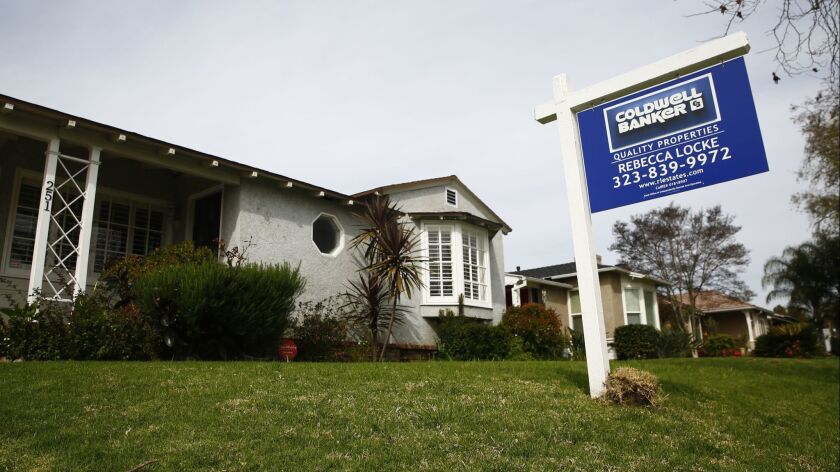Bid to allow duplexes on most California lots dies after Assembly approval comes too late

A bill that would have allowed for duplexes on most single-family lots in California passed the Assembly late Monday night, but died when the year’s legislative session came to an end before the Senate could take it up for a vote.
After an initial attempt fell short of passage by three votes, the Assembly took a second look at Senate Bill 1120, passing it with a margin of 42 to 17, just one vote more than was needed and just three minutes before a midnight deadline to clear both houses.
But the bill did not reach the Senate with enough time for legislators to take it up, a spokeswoman for Senate President Pro Tem Toni Atkins (D-San Diego), the bill’s author, confirmed.
SB 1120 wouldn’t have outlawed single-family houses. But it would have required local governments to permit applications to convert a house into a duplex or to demolish a house and build two units, either as a duplex or two single-family houses.
Property owners could also have split their lot in two and built two more units, thus allowing four homes where there previously was just one.
The defeat marked the latest failure for a series of high-profile measures aimed at boosting density to ease a housing crisis most economists blame on a lack of supply that’s caused people to bid up the cost of housing to find a place to live.
Among those efforts was Senate Bill 50 that would have allowed for mid-rise apartment buildings near transit and job centers.
It failed in January, leading Atkins to introduce SB 1120, which she said could increase supply, while respecting neighborhood character.
But like SB 50, it drew fierce opposition from community groups who said it was a developer giveaway that would ruin single-family neighborhoods, while producing mostly high-end housing that wouldn’t help those most at need.
In South Los Angeles in particular, residents feared SB 1120 would unleash an investment flood that would accelerate gentrification. Some in the community saw it as an affront to how hard Black Americans fought to join single-family neighborhoods, battling redlining, racist covenants and even violence.
SB 1120 passed the state Senate in June, 39 to 0, with one abstention, but still needed to pass the Assembly.
If it did, it would then need to come back to the Senate, because it was amended slightly.
As the clock ticked toward midnight, the bill was finally brought up on the Assembly floor. Among the supporters was Assemblywoman Buffy Wicks (D-Oakland), who spoke while holding her newborn baby after being denied the ability to vote by proxy amid the pandemic.
“I was actually in the middle of feeding my daughter when this bill came up,” she said after arriving on the Assembly floor. “I just come down here in strong support of this bill, and urge my colleagues: It’s the simplest way we can have density that still adheres to neighborhood character. “
Others urged a no vote. Some decried that the bill would limit local control; some said they may have supported the bill, but worried a major change to California neighborhoods was being rushed without time for proper debate and analysis.
“This is a major piece of public policy and we should be debating this not for 15 minutes, not for 30 minutes but for several hours,” said Assemblyman Chad Mayes, a former Republican Assembly leader and now independent from Yucca Valley. “I still could support, maybe next year, but not this year, because we haven’t had the time to properly debate it.”
Ten minutes to midnight, the bill hit 38 votes, shy of the 41 needed to pass, and it was put aside.
A few minutes later, it was brought back and passed at 11:57 p.m.
It was on to the Senate, but it was too late.
Midnight passed without a vote in that house where Atkins, the bill’s author, is Senate leader.
Comments